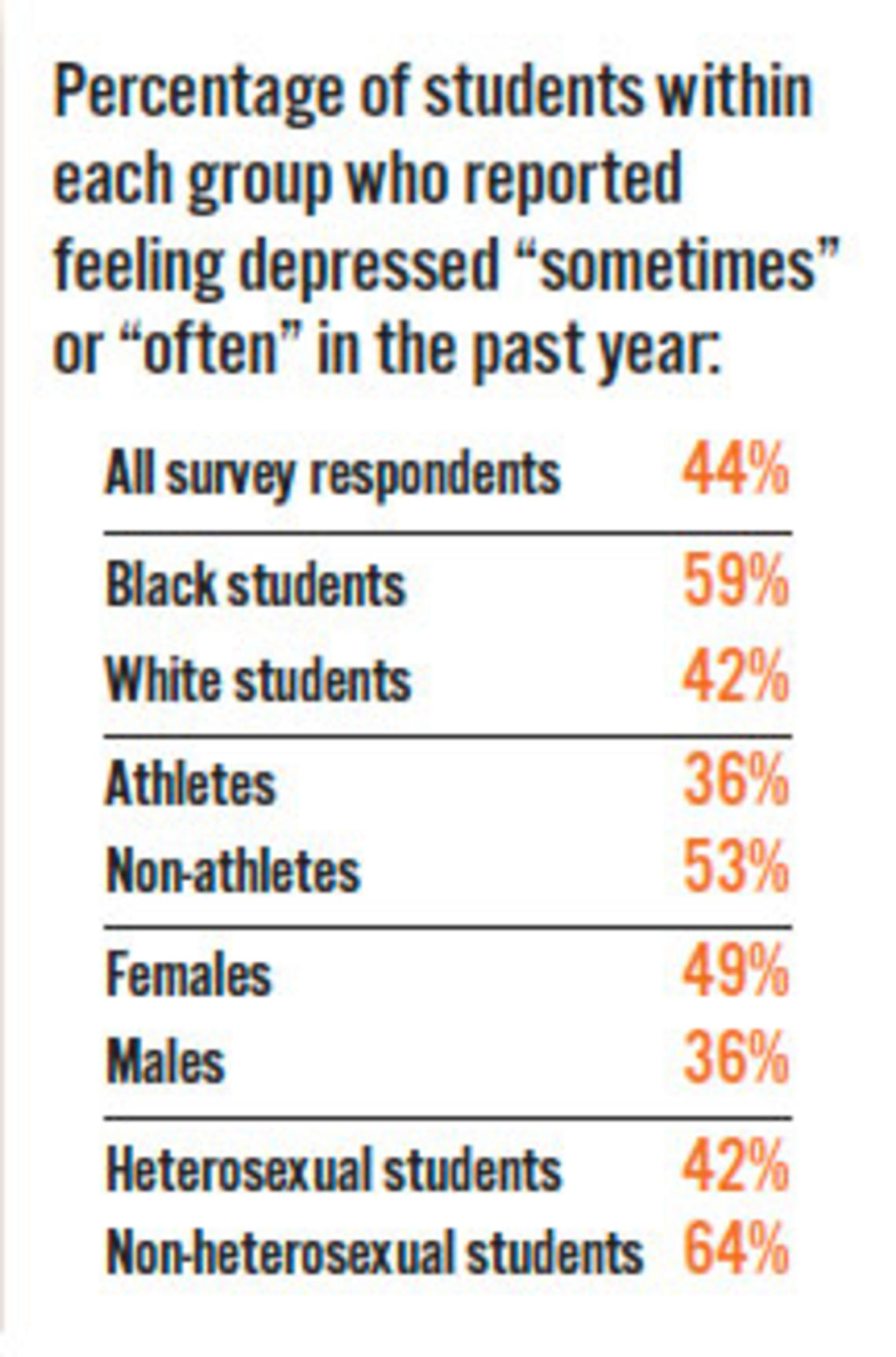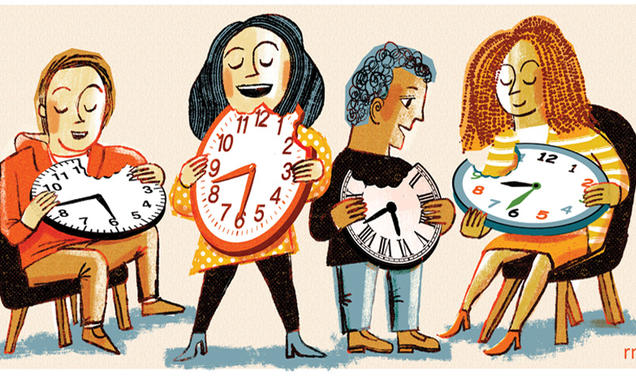
African-American and female students at Princeton were significantly more likely than other students to report feeling depressed, while athletes were less likely to do so, according to the results of an Undergraduate Student Government survey conducted last summer. And students who identified themselves as gay or lesbian, bisexual, queer, asexual, or “unsure” were more likely to report feeling depressed than heterosexual students were.
More than 1,850 students — 36 percent of undergraduates — completed the online survey, which asked students about their mental well-being, social life, academics, extracurriculars, and post-graduation plans.
New USG president Bruce Easop ’13 said that working with the administration to address mental-health issues will be “a top priority.” The survey results represent “a red flag to students and administrators alike that mental health deserves our full attention and resources,” he said.
Anita McLean, director of the University’s counseling and psychological services, said the survey data on mental health reflect the trends seen on most college campuses. Each year about 18 percent of Princeton undergraduates use her office’s services, which include individual psychotherapy, group counseling, and other programs, McLean said.
The survey results are being used as a guide for new USG projects, including a mental-health initiative to address issues such as stress, depression, and sexual assault, said Jess Brooks ’13, who is helping to organize the effort.
AMONG OTHER SURVEY FINDINGS:
- Women lagged behind men in their assessment of their leadership skills: 44.7 percent of women reported feeling “above average” or in the “highest 10 percent” in their leadership ability compared with the typical Princeton student, while 58.1 percent of men chose those responses. Rating their intellectual self-confidence, 30.6 percent of female students scored themselves in the two highest categories, while 56.6 percent of men did.
- Students from rural backgrounds were twice as likely as those from other backgrounds to feel their high school left them unprepared for coursework at Princeton, and were twice as likely to choose their major based on its future financial prospects.
- Students who identified themselves as other than heterosexual were more likely to take a year off from school.
- Athletes, who made up about a third of the responding students and included participants in varsity, junior varsity, and intramural athletics, rated their emotional health, social self-confidence, and leadership ability in the highest 10 percent or above average more often than non-athletes. They were more likely to hold leadership positions in eating clubs, fraternities, and sororities. Athletes also felt more comfortable networking when pursuing internships or job opportunities, and a higher proportion were inclined to pursue business degrees.
- Women were significantly more likely to bicker a club, and to be rejected, than men were.










1 Response
Liza Halloran ’87
9 Years AgoProofreading at PAW
While PAW may have good proofreading, I would submit that the statement, “Women lagged behind men in their assessment of their leadership skills” (Campus Notebook, Feb. 8), was an erroneous interpretation of data showing 58 percent of men vs. 45 percent of women thinking they are in the top of their class with regard to leadership. How about: “Women were more realistic than men in assessing their leadership skills”?